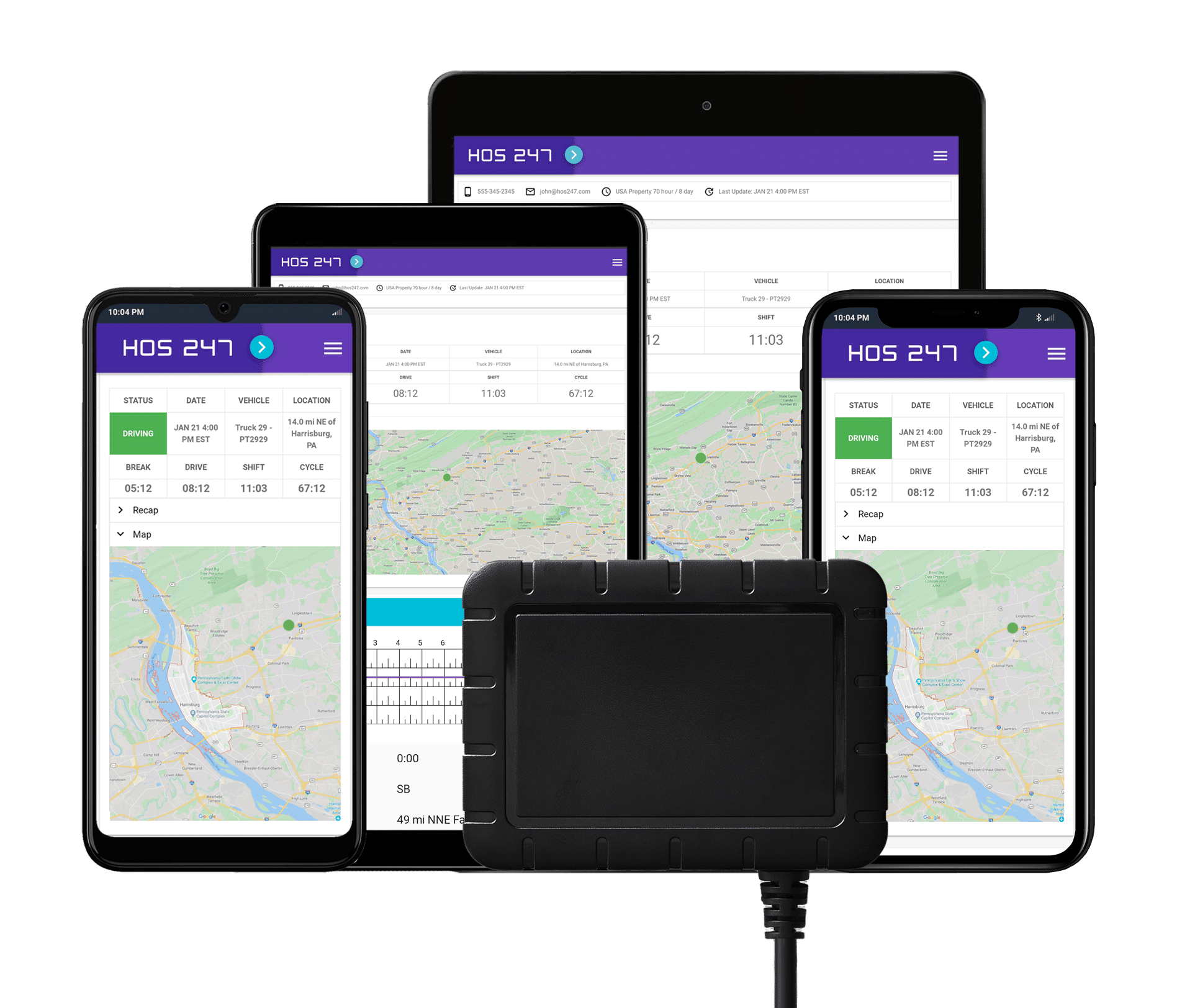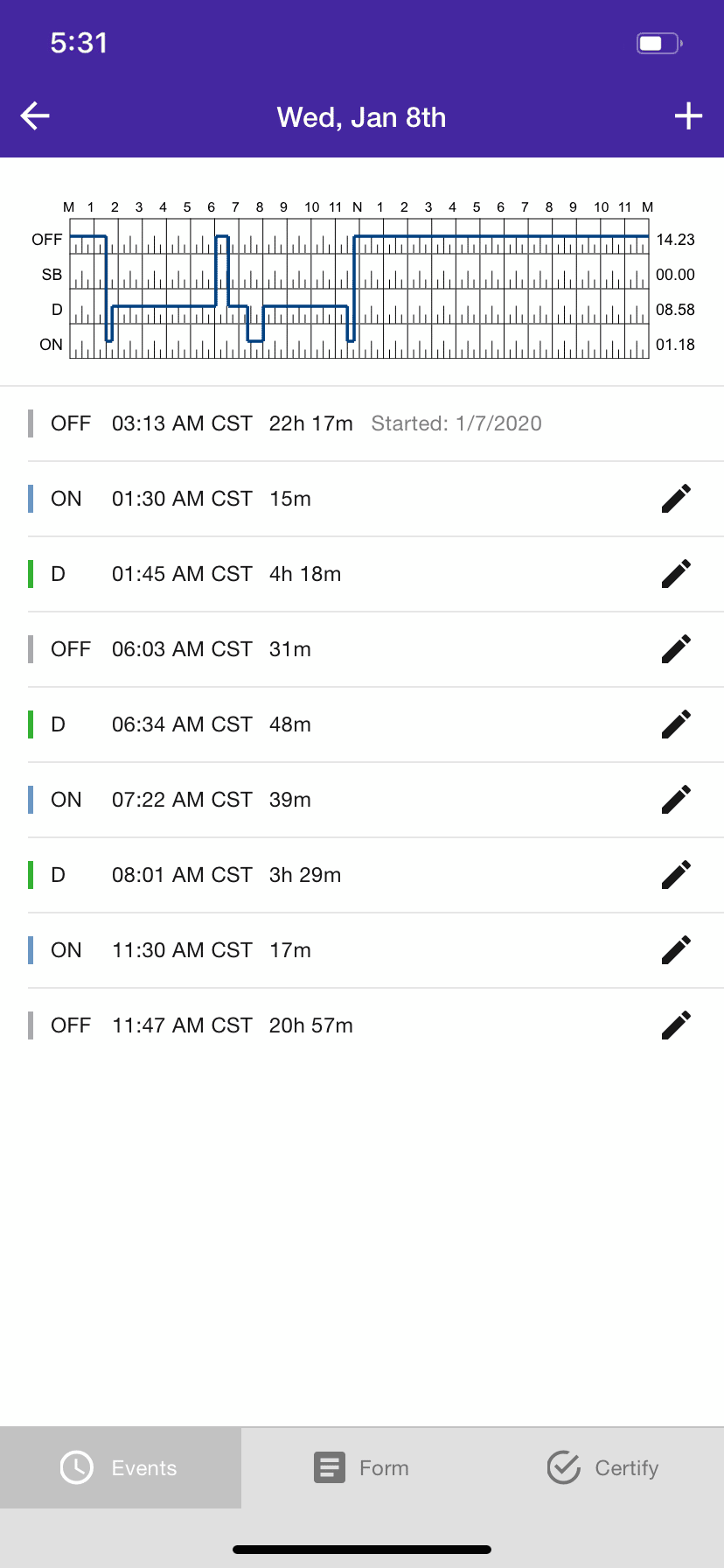Businesses in Canada the transportation sector can benefit considerably from real time fleet tracking. Incorporating this technology gives managers full visibility of the fleet, reducing costs and boosting productivity. In this article, we will go through the main benefits of trackers and how to choose a system that works for your fleet.
The benefits GPS offers truckers include:
- Reduced operating costs. Real time GPS fleet tracking optimizes fuel use significantly by:
- Keeping idling to a minimum. It’s easy to lose track of time when one is waiting, but idling can be costly. Fleet tracking systems monitor idling and help managers correct course to keep it to a minimum.
- Controlling speed. Drivers know that constant speeds can significantly reduce fuel consumption in the long run. GPS technology allows them to optimize fuel usage.
- Streamlining maintenance. Tracking solutions can schedule preventative maintenance and detect fault codes. These actions help reduce wastage and prolong vehicles’ useful lives. Also, a well maintained and well-kept fleet ensures compliance and enhances performance, making for a better safety profile.
- Improving dispatch. By improving coordination, dispatchers can optimize assignments and routes, saving time and fuel.
- Increased safety. A real time fleet tracking and monitoring system can work with a hidden device that helps the owner locate and recover assets and equipment in case of theft. Alerts are issued if a vehicle is used during off-hours or outside authorized areas. Also, routine maintenance and fault code detection mean the vehicles are safer to drive.
- Better customer service. Fleet owners and managers know the exact location of every vehicle in their fleet in real time, which improves dispatching and increases the number of loads that can be transported. Also, clients can be given more precise information on the current status of their shipping.
Reports and alerts. Real time fleet tracking software allows automation of clear, easy-to-read reports on the spot. Data can be organized to provide information on daily activity, speeding, violations, job lists, excessive idling, and more.

Choosing a GPS Tracking System
There are several important things to keep in mind when looking for a GPS fleet tracking system. Fleets operating in intraprovincial commerce may want to look at an electronic logging system that includes real time fleet tracking.
In this way, it is possible to work with a single provider to get tracking services and comply with the Canadian ELD mandate, which will be in full effect beginning January 1, 2023. This strategy will procure GPS fleet tracking in real time and achieve ELD compliance in a single action.
A fleet tracking system should also offer the following advantages:
- Ease of use. User-friendly software is an essential component of a real time fleet tracking system. The technology used in these devices is fairly complex, but users must be able to manage it easily. The key is to have an intuitive app and fleet manager portal.
- Compatible hardware. If your fleet has several types of vehicles, such as light and medium-duty trucks, it would be highly convenient to find a device that works with all of them.
- Fast installation. Systems that require special installation often mean downtime and additional fees. There are quality devices with quick and straightforward installation.
- Efficient support. A tracking system is only as reliable as its customer support team. Providers should assist their customers install and use their GPS tracker to help the business get the most out of it and to optimize fleet performance. They should also help troubleshoot when you need it.
- 4G LTE technology. Devices with 4G technology are significantly faster than those that work with 3G networks.
Demo or trial period. Before purchasing, it is wise to try out the product to see how it performs on the road. To make sure the system is right for your business, ask providers for a test drive or a demo.
Benefits of HOS247 4G Fleet Tracking
There is a wide variety of real time fleet tracking and monitoring systems to choose from, but not all providers are equally committed to customer satisfaction. It is important to find and choose a tracking solution that performs as expected and can be relied upon.
HOS247 has provided trucking businesses with fleet management solutions for years, and we work hard to offer top-rated customer service and countless benefits, helping fleets save money without compromising safety or performance. HOS247 customers can cut expenses and improve logistics thanks to this effective, dependable and modern 4G GPS solution.
Benefits include:
- Operational cost savings. From reducing fuel wastage to extending the useful life of your vehicles, the HOS247 GPS tracker streamlines operations and helps identify areas of opportunity to increase profitability.
- Easy access and installation. The hardware device is small and quickly installed; no complicated wiring or complex instructions.
- Intuitive interface. The tracking software can be downloaded and installed from a regular internet browser. The fleet manager simply logs in with their credentials and the system will be ready for use.
- Maintenance features. Our service includes features to schedule preventive maintenance, avoiding breakdowns and costly repairs.
- Fault code detection. Any issue that can interfere with the truck’s proper functioning will be detected and notified to the driver and manager. The system can also notify managers in case of an accident.
Efficient customer support. At HOS247 we offer assistance to our customers seven days a week in English, Spanish, Russian, and Polish. If the call ever drops, a callback policy is in place to save truckers time and resolve the issue as soon as possible.

What Is an ELD?
An electronic logging device, or ELD is a technology truckers use to automatically record driving time and hours of service (HOS). It captures data from the engine to record time and miles driven.
The electronic logbook displays records of duty status (RODS) for truck drivers and dispatchers in real time to support compliance and everyday operations. An electronic logging system is made up of several parts: the tracking device that connects to the truck, the fleet management software, and the driver’s mobile app. These components work together for accurate recordkeeping.
Recording drivers’ hours behind the wheel is a matter of public safety. Truck drivers have had to log their working hours on paper for a long time; however, these logs can be unreliable due to human mistakes or tampering. Once the ELD mandate is fully enforced, records of duty status will have to be kept with an electronic logging device.
Who Needs an ELD?
According to the ELD mandate, most commercial motor vehicle drivers in Canada will be required to use electronic logbooks to record their HOS beginning January 1, 2023. Property- and passenger-carrier vehicles traveling across provincial lines are included in this rule. However, there are a few exemptions, including:
- Drivers operating within 160 kilometers from their central work location (called the short-haul drivers).
- Drivers working for carriers with a statutory exemption or special permit issued by provincial or federal authorities.
- Drivers of vehicles rented for 30 days or less.
- Drivers of vehicles manufactured before the year 2000.
HOS247 offers electronic logging devices that are top-rated by truckers on the App Store and Google Play. Our all-in-one fleet management system integrates with our GPS fleet tracking system and can be upgraded with IFTA calculations to facilitate tax reporting.

I’ve co-founded, built and managed several transportation-related businesses. Now, I’m a founder and CEO of HOS247 – an AI Transportation Platform for trucking companies, freight brokers and other logistics operations. We are transitioning old-style operations to technology-advanced logistics entities and help them to grow their businesses. ELDs (electronic logging devices), fleet tracking and management 2.0 combined with AI-powered dispatch tools.












For commercial truck drivers, electronic logging devices (ELDs) are more than just another piece of technology — they’re essential tools that directly impact compliance, efficiency, and financial bottom line. Choosing the best app to log driving hours can mean the

Trucking businesses will have to rely on ELD providers to stay Transport Canada compliant once the ELD mandate is in full enforcement. That is why choosing a reputable company with an efficient electronic log book for sale is so important.

As a trucker, your electronic logging device (ELD) can be either your best friend or your biggest headache. With the Transport Canada mandate requiring ELDs for most commercial drivers, finding the right driving log app for Android isn’t just about